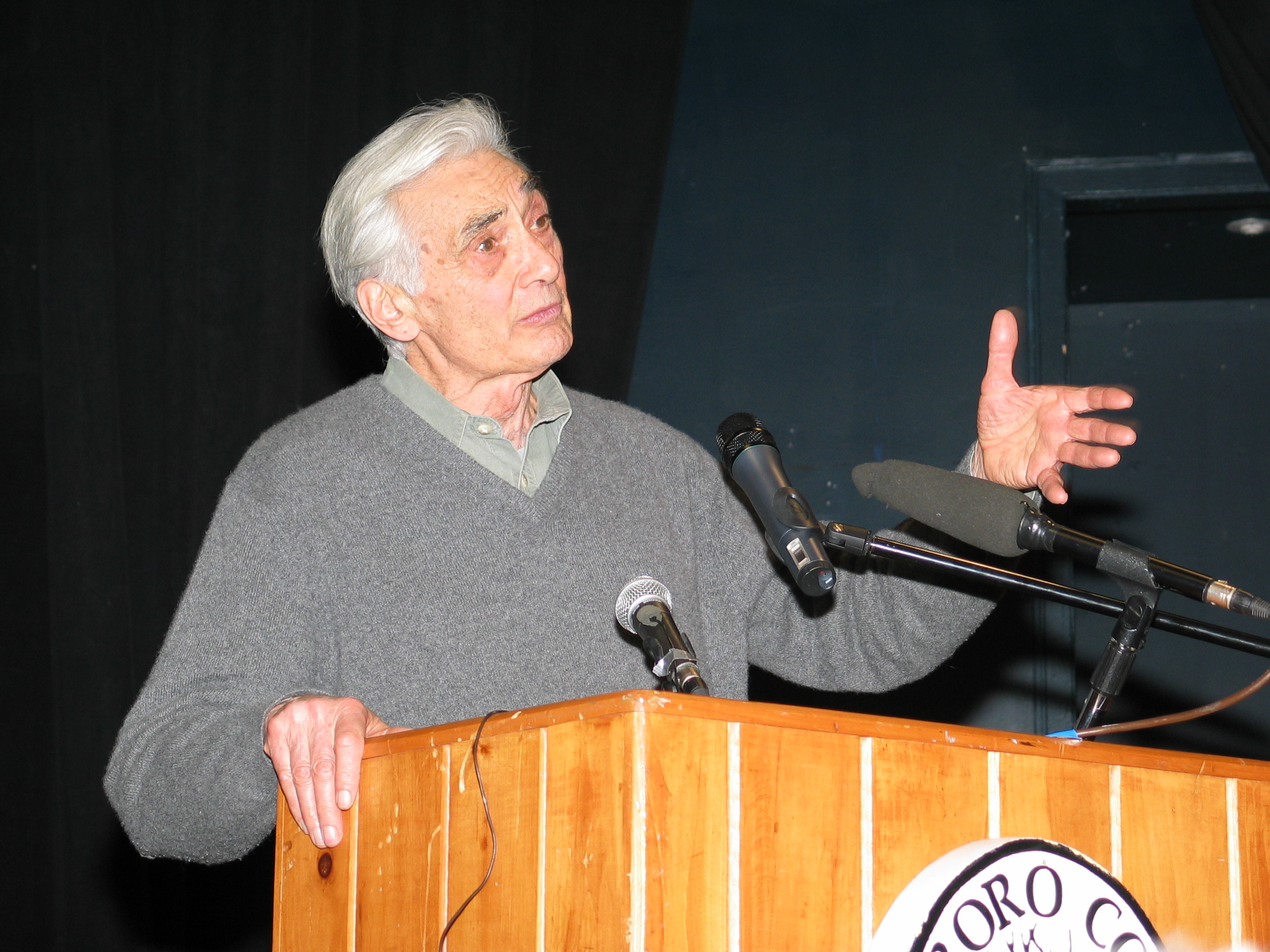|
Ars Americana Ars Politica
Ars Americana, Ars Politica: Partisan Expression in Contemporary American Literature and Culture is a 2010 critical study by Peter Swirski. The book examines contemporary American political literature and culture in the context of American politics and history. It examines not only the partisan credentials of what it argues is a new brand of art engagé, but also the "nobrow" style in which it conducts its political business. The principal examples of American literature that Swirski discusses in detail are: Irving Wallace’s ''The Man'' (1964), Richard Condon’s ''Death of a Politician'' (1978), P.J. O’Rourke’s ''Parliament of Whores'' (1991; 2003), Warren Beatty’s script and film ''Bulworth'' (1998), and Michael Moore’s ''Stupid White Men... and Other Sorry Excuses for the State of the Nation'' (2002; 2004). Each is selected because political partisanship is a part of its artistic agenda. As Swirski remarks in the introduction, the political art discussed in ''Ars ... [...More Info...] [...Related Items...] OR: [Wikipedia] [Google] [Baidu] |
Peter Swirski
Peter Swirski is a Canadian scholar and literary critic featured in ''Canadian Who's Who ''Canadian Who's Who'' is a publication containing biographical information about 13,000 notable Canadians. Because of the absence of biographical fact-checking by the publishers (e.g. candidates send in their own biographical details without any ...''. As a specialist in American literature and American Studies, he is the author of many books, including the prize-winning ''Ars Americana, Ars Politica'' (2010) and the staple of American popular culture studies '' From Lowbrow to Nobrow'' (2005). His other studies include ''American Utopia and Social Engineering'' (2011), ''American Political Fictions'' (2015), ''American Utopia: Literature, Society, and the Human Use of Human Beings'' (2020, Routledge textbook), and the digital-futurological bestseller ''From Literature to Biterature'' (2013). He is also the leading scholar on the late writer and philosopher Stanisław Lem. Life and caree ... [...More Info...] [...Related Items...] OR: [Wikipedia] [Google] [Baidu] |
American Literature
American literature is literature written or produced in the United States of America and in the colonies that preceded it. The American literary tradition thus is part of the broader tradition of English-language literature, but also includes literature of other traditions produced in the United States and in other immigrant languages. Furthermore, a rich tradition of oral storytelling exists amongst Native American tribes. The American Revolutionary Period (1775–1783) is notable for the political writings of Benjamin Franklin, Alexander Hamilton, Thomas Paine, and Thomas Jefferson. An early novel is William Hill Brown's ''The Power of Sympathy'' published in 1791. Writer and critic John Neal in the early-mid nineteenth century helped advance America's progress toward a unique literature and culture, by criticizing predecessors like Washington Irving for imitating their British counterparts and influencing others like Edgar Allan Poe. Edgar Allan Poe took Am ... [...More Info...] [...Related Items...] OR: [Wikipedia] [Google] [Baidu] |
American Culture
The culture of the United States of America is primarily of Western culture, Western, and Culture of Europe, European origin, yet its influences includes the cultures of Asian Americans, Asian American, African Americans, African American, Latin Americans, Latin American, and Native Americans in the United States, Native American peoples and their cultures. The United States has its own distinct social and cultural characteristics, such as American English, dialect, Music of the United States, music, Visual art of the United States, arts, society of the United States, social habits, American cuisine, cuisine, and Folklore of the United States, folklore. The United States is Multiculturalism, ethnically diverse as a result of large-scale Ethnic groups in Europe, European immigration throughout its history, its hundreds of Native Americans in the United States, indigenous tribes and cultures, and through African Americans, African-American slavery followed by Emancipation Procl ... [...More Info...] [...Related Items...] OR: [Wikipedia] [Google] [Baidu] |
American History
The history of the lands that became the United States began with the arrival of Settlement of the Americas, the first people in the Americas around 15,000 BC. Native American cultures in the United States, Numerous indigenous cultures formed, and many saw transformations in the 16th century away from more densely populated lifestyles and towards reorganized polities elsewhere. The European colonization of the Americas began in the late 15th century, however most colonies in what would later become the United States were settled after 1600. By the 1760s, the Thirteen Colonies, thirteen British colonies contained 2.5 million people and were established along the East Coast of the United States, Atlantic Coast east of the Appalachian Mountains. After French and Indian Wars, defeating France, the British government imposed a series of taxes, including the Stamp Act 1765, Stamp Act of 1765, rejecting the colonists' constitutional argument that new taxes needed their approval. ... [...More Info...] [...Related Items...] OR: [Wikipedia] [Google] [Baidu] |
American Politics
The politics of the United States function within a framework of a constitutional federal republic and presidential system, with three distinct branches that share powers. These are: the U.S. Congress which forms the legislative branch, a bicameral legislative body comprising the House of Representatives and the Senate; the executive branch which is headed by the president of the United States, who serves as country's head of state and government; and the judicial branch, composed of the Supreme Court and lower federal courts, and which exercises judicial power. Each of the 50 individual state governments have the power to make laws within their jurisdictions that are not granted to the federal government nor denied to the states in the U.S. Constitution. Each state also has a constitution following the pattern of the federal constitution but differing in details. Each have three branches: an executive branch headed by a governor, a legislative body, and judicial bra ... [...More Info...] [...Related Items...] OR: [Wikipedia] [Google] [Baidu] |
Culture Of The United States
The culture of the United States of America is primarily of Western culture, Western, and Culture of Europe, European origin, yet its influences includes the cultures of Asian Americans, Asian American, African Americans, African American, Latin Americans, Latin American, and Native Americans in the United States, Native American peoples and their cultures. The United States has its own distinct social and cultural characteristics, such as American English, dialect, Music of the United States, music, Visual art of the United States, arts, society of the United States, social habits, American cuisine, cuisine, and Folklore of the United States, folklore. The United States is Multiculturalism, ethnically diverse as a result of large-scale Ethnic groups in Europe, European immigration throughout its history, its hundreds of Native Americans in the United States, indigenous tribes and cultures, and through African Americans, African-American slavery followed by Emancipation Procl ... [...More Info...] [...Related Items...] OR: [Wikipedia] [Google] [Baidu] |
Irving Wallace
Irving Wallace (March 19, 1916 – June 29, 1990) was an American best-selling author and screenwriter. He was known for his heavily researched novels, many with a sexual theme. Early life Wallace was born in Chicago, Illinois, to Bessie Liss and Alexander Wallace (an Americanized version of the original family name of Wallechinsky). The family was Jewish and originally from Russia. Wallace was named after his maternal grandfather, a bookkeeper and Talmudic scholar of Narewka, Poland. Wallace grew up at 6103 Eighteenth Avenue in Kenosha, Wisconsin, where he attended Kenosha Central High School. He was the father of Olympic historian David Wallechinsky and author Amy Wallace. Career Wallace began selling stories to magazines when he was a teenager. In the Second World War Wallace served in the Frank Capra unit in Fort Fox along with Theodor Seuss Geisel – better known as Dr. Seuss – and continued to write for magazines. He also served in the First Motion Picture Uni ... [...More Info...] [...Related Items...] OR: [Wikipedia] [Google] [Baidu] |
Richard Condon
Richard Thomas Condon (March 18, 1915 – April 9, 1996) was an American political novelist. Though his works were satire, they were generally transformed into thrillers or semi-thrillers in other media, such as cinema. All 26 books were written in distinctive Condon style, which combined a fast pace, outrage, and frequent humor while focusing almost obsessively on monetary greed and political corruption. Condon himself once said: "Every book I've ever written has been about abuse of power. I feel very strongly about that. I'd like people to know how deeply their politicians wrong them." Condon's books were occasionally bestsellers, and a number of his books were made into films; he is primarily remembered for his 1959 ''The Manchurian Candidate'' and, many years later, a series of four novels about a family of New York gangsters named Prizzi. Condon's writing was known for its complex plotting, fascination with trivia, and loathing for those in power; at least two of his books ... [...More Info...] [...Related Items...] OR: [Wikipedia] [Google] [Baidu] |
Warren Beatty
Henry Warren Beatty ( né Beaty; born March 30, 1937) is an American actor and filmmaker, whose career spans over six decades. He was nominated for 15 Academy Awards, including four for Best Actor, four for Best Picture, two for Best Director, three for Original Screenplay, and one for Adapted Screenplay – winning Best Director for '' Reds'' (1981). Beatty is the only person to have been nominated for acting in, directing, writing, and producing the same film, and he did so twice: first for ''Heaven Can Wait'' (with Buck Henry as co-director), and again for ''Reds''. Eight of the films he produced earned 53 Academy nominations. In 1999, he was awarded the Academy's highest honor, the Irving G. Thalberg Award. Beatty was nominated for 18 Golden Globe Awards, winning six, including the Golden Globe Cecil B. DeMille Award in 2007. Among his Golden Globe nominated films are, his screen debut, ''Splendor in the Grass'' (1961), ''Bonnie and Clyde'' (1967), ''Shampoo'' (1975) ... [...More Info...] [...Related Items...] OR: [Wikipedia] [Google] [Baidu] |
Michael Moore
Michael Francis Moore (born April 23, 1954) is an American filmmaker, author and left-wing activist. His works frequently address the topics of globalization and capitalism. Moore won the 2002 Academy Award for Best Documentary Feature for '' Bowling for Columbine'', which examined the causes of the Columbine High School massacre and the overall gun culture of the United States. He also directed and produced '' Fahrenheit 9/11'', a critical look at the presidency of George W. Bush and the War on Terror, which earned $119,194,771 to become the highest-grossing documentary at the American box office of all time. The film also won the Palme d'Or at the 2004 Cannes film festival, and was subject to intense controversy. His documentary '' Sicko'', which examines health care in the United States, is one of the top ten highest-grossing documentaries . In September 2008, he released his first free movie on the internet, ''Slacker Uprising'', which documented his personal quest ... [...More Info...] [...Related Items...] OR: [Wikipedia] [Google] [Baidu] |
Howard Zinn
Howard Zinn (August 24, 1922January 27, 2010) was an American historian, playwright, philosopher, socialist thinker and World War II veteran. He was chair of the history and social sciences department at Spelman College, and a political science professor at Boston University. Zinn wrote over 20 books, including his best-selling and influential '' A People's History of the United States'' in 1980. In 2007, he published a version of it for younger readers, ''A Young People's History of the United States''. Zinn described himself as "something of an anarchist, something of a socialist. Maybe a democratic socialist." He wrote extensively about the civil rights movement, the anti-war movement and labor history of the United States. His memoir, ''You Can't Be Neutral on a Moving Train'' (Beacon Press, 2002), was also the title of a 2004 documentary about Zinn's life and work. Zinn died of a heart attack in 2010, at age 87. Early life Zinn was born to a Jewish immigrant fa ... [...More Info...] [...Related Items...] OR: [Wikipedia] [Google] [Baidu] |





_color.jpg)
